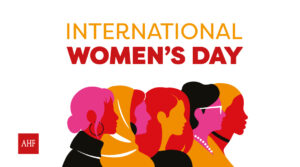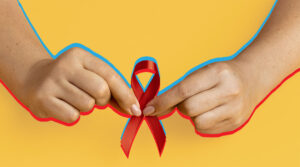While the cases of Monkeypox grow exponentially despite the clear underreporting in the Latin American and Caribbean region, the response to what is also called Monkeypox is complicated in the health systems of the countries as it is not classified as an Infection of sexual transmission.
There is a consensus in the scientific community that it is necessary to declare Monkeypox as a Sexually Transmitted Infection (STI), since current evidence indicates that its transmission is related to sexual practices, although not only with them, that is, It can also be transmitted by non-sexual contact, so precise communication of prevention measures to the population and groups of people where the cases are concentrated, that is, gay men, bisexuals and trans women, is necessary.
In a study published in the New England Journal of Medicine (NEJM) on July 21, conducted in 16 countries including Mexico and Argentina, where 528 cases of Monkeypox were analyzed, 98% of them were homosexuals or bisexuals diagnosed between April and June 2022, 95% presented skin lesions and 7 out of 10 presented them in the genital anus area. In 90% of the semen samples analyzed, the presence of virus DNA was found.
Three out of 10 study participants had sexually transmitted infections (STIs) other than Monkeypox, so much so that most were diagnosed at STI and/or HIV screening clinics. Only 13% required hospitalization for genital anus pain.
This virus already existed, it was detected for the first time in 1958 in two communities in Africa, and although it is attributed to a group of monkeys in which older strains have been traced in rodents, the orthopoxvirus that causes Monkeypox is transmitted from animal to human and from human to animal primarily by skin-to-skin contact, mucous membranes, short-range respiratory droplets, and contaminated materials.
As of August 24, the World Health Organization (WHO) reports 41,717 accumulated cases in the world, with an average of 842 per day, 4,348 of them in America. The rate of growth is worrying and although Monkeypox is a low-lethality disease, it is cumbersome and disabling, as well as painful and highly transmissible.
The rashes, lesions or blisters do not cause itching, sometimes they are very painful, and there is fever, muscle aches, swollen glands. Monkeypox cannot be self-diagnosed, a specific test or clinical diagnosis by a specialist is necessary. When confirming its presence it is necessary to isolate between three and four weeks, due to the pain some cases require hospitalization.
Of course, physical contact with people and pets should be avoided, utensils, surfaces and bathrooms should be disinfected, always with gloves and face masks. To date, the efficiency of condom use in the presence of smallpox lesions has not been demonstrated.
Underdiagnoses and vaccines
“In most of the countries of the region, genetic sequencing and diagnostic tests are scarce and centralized by governments in one or two laboratories per country, which in itself is a barrier to diagnosis. For this reason, it is urgent that the countries in the region have guidelines for confirmation by clinical diagnosis and that the cases that have all the symptoms, even if they do not have a confirmatory test, be counted in the statistics,” says Patricia Campos, Head of the Bureau of Latin America and the Caribbean of AIDS Healthcare Foundation.
“Otherwise, the problem would be made invisible and thus the resources for patient care and the resources for prevention campaigns would be limited,” he insists.
And the numbers speak for themselves. For example, in Mexico, as in other countries in the region, it is not being detected and the figures do not add up. “It is difficult to think that countries like Peru, with less than a third of the population in relation to Mexico, add three times as many cases, it is not being diagnosed enough or there are some kind of barriers to confirm it.”
“Consequently, if it is not detected in a country, there are no figures, it will not be a priority country when the production of the vaccine is accelerated and distributed. For this reason, it is important to continue pressing to achieve it, and detect so that we are a priority country at the time of coverage,” says Jorge Saavedra, executive director of the AHF Institute of Global Public Health at the University of Miami.
Despite the evidence, the WHO has not required putting the disease within sexually transmitted infections (STIs) and it is clear that it is transmitted by other routes does not prevent it from being considered an STI, as is the case with syphilis, herpes or molluscum that, in addition to sexual contact, is acquired by other means.
The reality is that there is a lack of information and detailed research, as well as preparation for doctors with the aim of preparing professional sexual histories of people diagnosed with Monkeypox, they must learn to ask without fear, with respect to document the transmission chains and habits .
In the event of lesions or papules on any part of the body, it is important that the person self-isolate, seek medical attention, use a face mask, separate their personal utensils and bedding, and avoid contact with other people while receiving treatment a diagnosis.
AHF offers diagnostic services for HIV and sexually transmitted infections. If you have any questions, you can contact some of our offices in Latin America and the Caribbean, find out where we have a presence here https://ahflatamycaribe.org/en/services-in-latam-and-caribbean/






